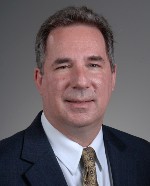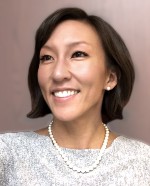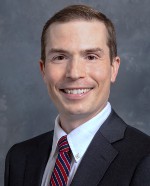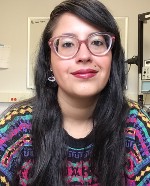|
In this Issue...
Inspiring Women in Science
 Contributor: F. Scott Hall, Ph.D. Contributor: F. Scott Hall, Ph.D.
Dr. F. Scott Hall is an Associate Professor of Pharmacology and Experimental Therapeutics in the College of Pharmacy and Pharmaceutical Sciences at the University of Toledo. His research has focused primarily upon the genetic basis of addiction and the role that early social experience plays in shaping adult behavior and behavioral pathology. After a B.A. from Harvard University (1987) and a Ph.D. from the University of Cambridge (1994), Dr. Hall completed a National Research Council Research Associateship at the National Institute on Alcoholism and Alcohol Abuse. His research at NIAAA focused on animal models of schizophrenia and alcohol use disorder. Dr. Hall joined the Molecular Neurobiology Branch at the National Institute on Drug Abuse in 1999 where he led a behavioral genetics group in the Molecular Neurobiology Branch until 2014, when he moved to the University of Toledo. Dr. Hall’s laboratory at the University of Toledo investigates the genetic and environmental determinants of susceptibility to addiction and related psychiatric disorders. His long-standing interest in the underlying mechanisms that lead to the development of psychopathology has contributed to advancement of models used to identify novel potential targets for the treatment of psychiatric disorders. His most current research focusses on the lethal and toxic effects of synthetic cathinones (e.g. “bath salts”). Dr. Hall has authored over 150 scientific publications. He is the immediate Past-President of the International Behavioral Neuroscience Society. His most recent book was Negative Affective States and Cognitive Impairments in Nicotine Dependence (Elsevier, 2016) edited with Jared Young and Andre Der-Avakian.
In reflecting on the many inspiring women behavioral neuroscientists during Women’s History month, my first thought was of one of my own mentors, the late Ann E. Kelley, Ph.D., whom we lost to cancer in 2007. In 2006 Dr. Kelley was honored by the Society for Neuroscience with the Mika Salpeter Lifetime Achievement Award that “Recognizes and individual with outstanding career achievements who has also supported the professional advancement of women in neuroscience”. This was certainly a well-deserved honor. At the ceremony, and at celebrations afterwards, she was surrounded by dozens of her former students, many of them very successful faculty members in their own right by then. She was honored for the advancement of women in neuroscience, which was certainly true, but I remember thinking that such an award, as valuable and important as it was, only recognized half of her achievement, because she was an equally dedicated and inspiring mentor to her non-female students as well, myself included.
Dr. Kelley was an incredibly accomplished scientist. In 1976, after undergraduate training at the University of Pennsylvania (where she also captained the field hockey and lacrosse teams), she was one of the first 13 women to be admitted to Trinity College, Cambridge (she also rowed for Cambridge). Her PhD supervisor was Prof. Susan Iversen, one of the most eminent figures in behavioral neuroscience herself. Dr. Kelley very quickly made important contributions to our understanding of striatal function, using the then novel technique of intracerebral drug injections. Among her many scientific achievements, she provided some of the first convincing evidence that neuropeptides influenced the activity of dopamine neurons. During her postdoctoral fellowship with the renowned neuroanatomist Walle Nauta at the Massachusetts Institute of Technology, Dr. Kelley showed that there were specific projections from the amygdala and the hippocampus to the nucleus accumbens. These publications are among the most cited papers in the field. Her work continued at the University of Bordeaux, Harvard University, Northeastern University, and the University of Wisconsin, where she spent much of her career. Among her accomplishments, she showed that amygdala projections to the striatum were critical links between sensory inputs and motivated behavior. Her work provided substantial evidence that drugs of abuse co-opted a network controlling the motivation for food. This included early ideas about how highly palatable foods produced very similar effects in the striatum to drugs of abuse. She was one of the first neuroscientists to analyze the differences between neural circuits involving the nucleus accumbens shell and core, and to show that structural changes in glutamate neurons contributed to instrumental learning. Overall, her work greatly contributed to our current understanding of striatal architecture and function.
In a short span of just over 20 years before her premature death, Dr. Kelley’s work was honored in all of the ways that count. This included continuous NIH funding for 20 years, a National Institute on Drug Abuse MERIT award, and an invited lecture at a Nobel Symposium in Stockholm. However, more than these accolades, her legacy is shown by the love, admiration and respect of her many, many students. As much as she created her own scientific legacy, she perhaps created an even greater legacy in the work of her students, whom she inspired not only to scientific achievement, but also try to live up to her example of mentorship for the next generation of behavioral neuroscientists.
Editor’s Note – This contribution was originally intended for the March-April Newsletter as part of Women’s History Month (March). We now hope to begin a tradition of celebrating inclusion and diversity every Newsletter with inspiring stories such as provided by Dr. Hall.
Back to Top
An Anecdote On Science and Life from Dr. Tracey Shors
 Tracey Shors, Ph.D. Tracey Shors, Ph.D.
Distinguished Professor
Behavioral & Systems Neuroscience
Vice Chair/Director of Graduate Studies
Department of Psychology
Center for Collaborative Neuroscience
Rutgers University
Lab website: https://sites.rutgers.edu/tracey-shors/
MAP Train My Brain: maptrainmybrain.com
The other day I was roaming around on Twitter when I saw a picture of an old antebellum-style building that felt very familiar. I immediately stopped to see what it was. Sure enough, this building, now known as Old Bryce Hospital, used to be a mental institution in Tuscaloosa Alabama. I worked in that hospital back in the early 80’s, while attending the University of Alabama as an undergraduate. Every week I would go there to teach an art class. And then right afterwards, I would lead an exercise class to music. I only remember bits and pieces of the actual classes. For one, I remember how excited and happy the patients would become when I placed the needle on the record (!) to start the music. Some days, the patients wanted to participate and other days not so much. Sometimes they were happy to see me and others not so much. I clearly remember being plagued by conflicting thoughts and feelings. Some days I would leave there with great hope that the patients would get better, and I had helped them along the way. Other days, I left feeling totally incompetent and helpless.
Little did I know at the time that I would continue to wrestle with some of these same thoughts and feelings today. Psychologists and others in the field of mental health are well aware that some people are more depressed or more anxious or traumatized than others and therefore need more or different types of help. But I worry that people who want help don’t know how to ask for it or even make the decision to try. And I especially worry about the people who don’t know that there are skills that anyone can learn that actually help. As an undergraduate, I knew next to nothing about mental health and even less about the brain. I thought I could heal people with the sheer force of my personality! Years of training have taught me otherwise.
I spent two decades studying the brain at a cellular level and then about ten years ago, put away my microscope to go back to where I started – trying to help people in person and face-to-face. Inspired by what I had learned in the lab, I created a brain fitness program that combines mental and physical training – called MAP Training – and it does help people feel less stressed and traumatized by life (maptrainmybrain.com). Oddly enough, the program is not that different from what I was teaching at the mental institution back in Alabama. Instead of art and exercise, my program incorporates mental training with meditation and physical training with aerobic exercise. Obviously, I no longer play music with a record player! And luckily, most people with mental health problems are not housed in those kinds of institutions. But even with the progress we have made and all the new therapies that have been developed, it is still very difficult for people to get the help they need or even know how to ask for it. But there is hope and mostly from our young scientists. And if you are one of them, rest assured that the work you are doing now is important and it will lead you to where you need to go, even if it is back to the beginning.
Back to Top
A Personal Story from Dr. Kay Tye
 Kay M. Tye, PhD Kay M. Tye, PhD
Professor
Wylie Vale Chair
Systems Neurobiology Laboratory
TYELAB.ORG
@KAYMTYE
Salk Institute for Biological Studies
10010 N Torrey Pines Rd • La Jolla, CA 92037
PH (858) 453-4100 x2525
E [email protected] www.salk.edu
While I would absolutely consider myself privileged, my path to becoming a scientist was far from a straight line. The greatest obstacle I had to overcome was that the primary undergraduate research experience I had was working in one lab for 2 years. In the middle of my senior year, my postdoc supervisor began to sexually harass me in such a way that directly prevented me from being able to do my work. I reported him to the PI, but it was a case of the postdoc’s word against mine, and so I was left without authorship on the project and without a letter of recommendation. This was a devastating blow that left me disillusioned with academia. Academia was supposed to be the purest, noblest pursuit of truth -- not a system rife with misconduct.
While I was still admitted to graduate school, I was rejected from many of the programs I applied to, and was generally unsure of whether I wanted to continue in academia and deferred for a year. I spent the rest of my senior year folding towels at the athletic center, questioning what I was going to do with my life. I then proceeded to take a year off during which I backpacked around Australia living in a tent. During this time, I tried a number of alternative career options ranging from farmer to yoga instructor to novelist. The year was transformative and I am so glad I had that time, but it left me realizing that I missed science. I love that in a scientific career, everything you do today builds upon what you and others have done before -- and that you leave a mark that will last beyond your own time on this planet.
Once I began grad school, I constantly questioned whether I “had what it takes” to make it in science. Although I initially struggled to find a home in graduate school, I eventually found an incredible PhD mentor Patricia Janak who believed in me, and she taught me to eventually come to believe in myself.
For a few decades, I chased “success” and spent years grinding away, feeling inadequate and occasionally burned out. Over time, I realized that “integrity” was my roadmap to happiness and fulfillment, and that has been my North star ever since.
I now strive to be the change I want to see.
To me, integrity is just being the same person all the time, stating your intentions openly, and doing what you say you will. Transparency, accountability, ethical conduct are all components of integrity. This is reflected in my science, my communication style, my parenting style, my refusal to participate in anonymous peer review (I sign all my manuscript reviews, for both recommendations of rejection and acceptance), and I aspire to uphold my core principles equally in all circumstances, whether they are to my benefit or not.
Back to Top
IBNS Early Faculty Awardee Statement
 Joseph A. McQuail, Ph.D. Joseph A. McQuail, Ph.D.
Assistant Professor
Department of Pharmacology, Physiology and Neuroscience
University of South Carolina School of Medicine
Columbia, SC 29208
Office: (803) 216-3528
Lab: (803) 216-3517
Fax: (803) 216-3538
I am very excited and honored to receive the IBNS Early Faculty Award! The culture of IBNS has always been defined by robust support for up-and-coming scientists of all career stages and I am thankful for their expanded consideration of junior faculty, particularly amid the ongoing, global COVID-19 pandemic. IBNS, and its annual meeting, has been highly influential throughout my own professional journey. As a postdoc in 2015, I was thrilled to participate in my first IBNS meeting with the generous support of a travel award. In 2018, as I contemplated the daunting proposition of applying to faculty openings, (now president-elect) Jill McGaughy listened thoughtfully to my aspirations and concerns before advising the University of South Carolina (UofSC) would be a great match for my scientific direction and professional personality. In my first few months as a tenure-track assistant professor at UofSC, and after having just recruited our first student to the lab, we debuted our inaugural scientific poster at the deftly reformulated IBNS 2020 Online Poster Session. At so many critical career steps, IBNS was there for me!
My affiliation with IBNS has also shaped my research and new lab in many positive ways. Consistent with the mission of IBNS, research in our lab is firmly focused on examining the mechanisms that underlie behavior, with a special emphasis on those that govern cognitive change over the lifespan. Like IBNS, our lab is also an important site for career development; we welcome undergraduates, graduate students, and other early career scientists and nurture their nascent and maturing interests in behavioral neuroscience. Thanks to the sizeable and diverse student population of UofSC, our lab is growing quickly and making great progress through teamwork that extends from mutual respect, shared responsibilities, and democratically determined goals. Further, we combine training in science with lab-centered forums that promote scholarly discussion and stimulate career planning which reflect the individualized interests and ambitions of each trainee. In all, the core values of IBNS are well-represented in our work and conduct.
I am looking forward to participating fully in IBNS 2021, the 30th annual meeting of the Society! Like many scientists working at institutions with COVID-related prohibitions against travel, I will join this year’s meeting as a virtual attendee. While I would have loved to travel to Puerto Vallarta, I am equally excited to learn about the latest behavioral neuroscience discoveries through the virtual forums that will synchronize with live presentations and interactive sessions at this year’s hybrid meeting. I am also very grateful for the hard work of IBNS leaders, committee members and staff to develop an impactful and meaningful scientific program that will keep behavioral neuroscientists from around the world engaged and safe.
I hope to see and talk with many of you at this summer’s IBNS meeting … and beyond!
Back to Top
30th Annual IBNS Conference
Save the date for this must-attend hybrid event! June 1 - 5, 2021, the 30th Annual IBNS Meeting (https://www.ibnsconnect.org/meetings) is in Puerto Vallarta, Mexico (https://www.youtube.com/watch?v=F3ViB5a9tyk&t=1s)
2021 Marks our Inaugural Hybrid Meeting!
IBNS is excited to be able to engage with our community in this new way through the Whova app and the new online meeting portal. You will have the opportunity to watch live and recorded talks in the virtual Ballroom as well as ask questions during live Q&A sessions. We received a record number of abstracts for posters and will have three separate poster sessions to allow for everyone to engage with the over 200 poster presenters.
In addition, this year we have new socials and discussions to provide space for everyone to be a part of the IBNS family:
Ethics & Diversity Committee Luncheon: Wednesday, June 2nd, 12pm CDT
In our current global context of a pandemic highlighting health disparities, racial reckoning and protests sparked by the murder of George Floyd, and the historic U.S. election of our first Black, Asian-American woman Vice President, the IBNS Ethics and Diversity Committee invites you to a luncheon to share in a discussion about unconscious bias. We will examine our unconscious biases and use a Case Study approach to think about how we might lean into equity and inclusion in our labs, departments, institutions, and workplaces.
Featuring: Dr. S. Tiffany Donaldson
Black in Neuro Social: Wednesday, June 2nd, 6pm CDT
Black In Neuro is an international grassroots organization dedicated to the support and amplification of Black scholars in neuroscience-related fields. It is a trainee-led organization that began in July 2020 amidst the heightened awareness of the racial injustices faced around the world and the isolation many of us felt. We aim to diversify the neurosciences by sharing knowledge, offering resources, and building community at every stage of one's academic journey. In collaboration with IBNS, Black In Neuro is hosting a social that will provide a fun opportunity for Black scholars to be exposed to the IBNS network and for everyone to make new friends. This event is open to EVERYONE (Black scholars, non-Black allies, people at various career stages, those not registered for the conference, etc) so come ready to have a good time and meet some amazing new people!
https://www.blackinneuro.com
Women in Learning: Thursday, June 3rd, 6pm CDT
WIL is a group of young scientists – mostly graduate students and postdocs – who share a common goal: promoting women in science. WIL was started by Dr. Moriel Zelikowsky in 2011 as an offshoot of the Pavlovian Society. As the group has expanded, we have developed new opportunities to support women in science, including our annual “WIL Outstanding Woman in Learning” award, our ongoing “Women to Watch” virtual research seminar, our 2020 Coronavirus Relief Fund, and our recent “Where there’s a WIL, there’s a way” research grant. We are proud of the work we have done to support women in science, and we’re really looking forward to introducing ourselves to the IBNS community!
At IBNS 2021, we are excited to host and invite you to a virtual panelist discussion and happy hour. We have recruited the IBNS keynote speakers (all women!) to serve as our panelists. Drs. Marina Picciotto, Tracey Shors, Gina Quirarte, and Kay Tye will share their career trajectories, experiences, and advice and answer any and all questions you have about being a woman in science. www.womeninlearning.com.
Be sure to keep checking the IBNS 2021 Meeting Page (https://www.ibnsconnect.org/meetings) for frequent updates.
Don't forget to stay connected with us through #IBNS, #IBNSconnect and #IBNS2021!
There will be a chance to meet with the chairs of the various IBNS Committees during the meeting, so don’t miss this opportunity to become more informed – and involved – with your Society!
Information on the history, geography, climate and landmarks of Puerto Vallarta can be found on Wikipedia - https://en.wikipedia.org/wiki/Puerto_Vallarta
Important Meeting Information from the IBNS Central Office
Register for the Meeting
Book your flight (Check your airline for change & cancellation fees after 3/31/21)
Make hotel reservations (Marriott PV is offering a seven (7) day cancellation policy)
Reserve your transportation to and from the Airport & Hotel
Meeting and Hotel FAQ's Check out the most frequently asked questions on our website.
Back to Top
IBNS 2021 Travel Awardees
We are pleased to announce this year’s awardees!
Postdoctoral Awards
Marie Labouesse, Columbia University, New York, NY, USA
Puja Parekh, Weill Cornell Medicine, New York, NY, USA
Hayley Fisher, University of Pittsburgh, Pittsburgh, PA, USA
Jordan Marrocco, The Rockefeller University, New York, NY, USA
Suzanne Nolan, Vanderbilt University, Nashville, TN, USA
Nicholas Race, University of Pittsburgh Medical Center, Pittsburgh, PA, USA
Ewa Galaj, National Institute on Drug Abuse Intramural Research, Bethesda, MD, USA
David Nguyen – University of Michigan, Ann Arbor, MI, USA
Ahmed Eltokhi – University of Tübingen, Tübingen, Germany
Graduate Awards
Michelle Stackmann, Columbia University, New York, NY, USA
Eleni Haritomeni Moschonas, University of Pittsburgh, Pittsburgh, PA
Nicholas Upright, Icahn School of Medicine at Mount Sinai, New York, NY, USA
Evelyn Ordoñes Sanchez, Temple University, Philadelphia, PA, USA
Moises dos Santos Correa, Universidade Federal do ABC, São Paulo, Brazil
Felicia Reed, Monash University, Melbourne, Australia
Kayla Nygaard, Washington University in St. Louis, Saint Louis, MO, USA
Sabrina Zequeira, University of Florida, Gainesville, FL, USA
Ileana Morales, University of Michigan, Ann Arbor, MI, USA
Claire Corbett, Rowan University, Vorhees, NJ, USA
Sean Monroe, Miami University, Oxford, OH, USA
Rhianne Scicluna, University of Sydney, Sydney, Australia
Tavleen Kaur, Taiwan International Graduate Program, Taipei, Taiwan
Undergraduate Awards
Megan Maxwell , Washington University in St. Louis, St. Louis, MO, USA
Aftyn Trumbo, Randolph-Macon College, Ashland, VA, USA
Anjali Kumari, North Carolina Agricultural and Technical State University, Greensboro, NC, USA
Please remember that the financial portion of the travel award will only be provided to the winners who declared an intent to attend the meeting in Puerto Vallarta in-person. All award winners will receive an award certificate, free registration to the 2021 meeting, 1 year membership, participation in the mentorship program, participation in the Travel Award Blitz presentations, and attendance to all other trainee events held during the meeting.
Back to Top
New Link for Contributing to the IBNS Newsletter
There is a section of IBNS Newsletter entitled Member News - This section reports upon and highlights significant events in the lives of members of the IBNS.
There are several potential subsections:
1) Significant Events and Milestones – This would include being named to prestigious professorships, promotions, tenure, etc.
2) Awards and Recognition – These include special types of recognition (best teacher, best young researcher, etc.) and funding for research activities, etc.
3) Recent Trends in Behavioral Neuroscience These are brief summaries (100-200 words plus citation) of recent exciting research activities in behavioral neuroscience.
4) Good News - Members share positive experiences as part of their research and teaching.
7) Hobbies - Share how your hobbies help you maintain a work/life balance that can be shared with others.
8) Virtual Mentor - These have been difficult times for graduate and post-doctoral students as well as faculty beginning their careers. Any advice and suggestions from our more established members could be very helpful and much appreciated.
You may now contribute your news directly via a link on the IBNS Website: https://ibnsconnect.org/ibns-newsletter-content-submission. We are looking forward to hearing from you and including your news in the IBNS Newsletter!
Back to Top
New Editor-in-Chief
 Beginning with the next IBNS Newsletter, there will be new and energetic Editor-in-Chief, Dr. Millie Rincón-Cortés, Research Assistant Professor, Grace Laboratory Department of Neuroscience, University of Pittsburgh, USA. It was an honor and a privilege to serve the IBNS editing the Newsletter and an equal honor and privilege pass the torch to a new Editor-in-Chief with new ideas and a new perspective. As the out-going Editor-in-Chief, I would like to take the opportunity to wish Dr. Rincón-Cortés well and encourage support from the IBNS membership. Thank you all for the opportunity to serve. Beginning with the next IBNS Newsletter, there will be new and energetic Editor-in-Chief, Dr. Millie Rincón-Cortés, Research Assistant Professor, Grace Laboratory Department of Neuroscience, University of Pittsburgh, USA. It was an honor and a privilege to serve the IBNS editing the Newsletter and an equal honor and privilege pass the torch to a new Editor-in-Chief with new ideas and a new perspective. As the out-going Editor-in-Chief, I would like to take the opportunity to wish Dr. Rincón-Cortés well and encourage support from the IBNS membership. Thank you all for the opportunity to serve.
Back to Top
|